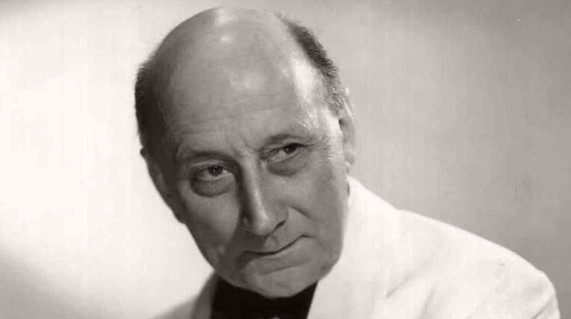Felix Aylmer: The Master of Graceful Authority on Stage and Screen

Felix Aylmer, a name that resonates with gravitas and eloquence, remains a pivotal figure in British theatrical and cinematic history. With a career spanning over six decades, Aylmer carved a niche for himself by bringing wisdom, dignity and a commanding presence to every role he embraced. Known for his signature delivery—measured, refined and resonant—he personified the archetypal English gentleman and sage, often portraying judges, clergy, kings and wise counsellors. While many actors of his era faded into obscurity, Aylmer’s legacy endures through his rich body of work and his lasting influence on generations of performers.
Early Life and Education
Felix Edward Aylmer Jones was born on 21 February 1889 in Corsham, Wiltshire. Raised in a respectable middle-class household, he exhibited a precocious intellect and a keen sense of oration from a young age. His education began at King James’s Grammar School and continued at Magdalen College School, Oxford. Later, he attended Exeter College, Oxford, where he studied theology and literature—a background that profoundly informed his later portrayals of philosophical and religious figures.
At Oxford, Aylmer became an active member of the Oxford University Dramatic Society (OUDS), rubbing shoulders with future literary giants and distinguished thespians. His performances in the OUDS plays earned him early acclaim and set the stage for a lifetime in performance.
The Path to the Stage
After university, Aylmer trained at the Royal Academy of Dramatic Art (RADA), refining his already eloquent delivery and deepening his understanding of classical texts. His stage debut came in 1911 at the London Coliseum. However, his theatrical pursuits were briefly interrupted by the outbreak of the First World War. Serving as a junior officer in the Royal Naval Volunteer Reserve, he gained life experience that added to the depth and gravity of his later roles.
Upon his return from service, Aylmer resumed acting, joining Sir Frank Benson’s Shakespearean company. This marked the beginning of a lifelong association with the works of Shakespeare, which would come to define his career.
Dominance in Classical Theatre
Felix Aylmer was a Shakespearean actor in the truest sense. Whether it was the melancholy wisdom of Polonius in Hamlet, the moral dilemma of the Archbishop in Henry V, or the mysticism of Merlin in Arthurian adaptations, he brought unmatched authenticity to his characters.
He shared the stage with the greats of his time—Laurence Olivier, John Gielgud, and Ralph Richardson—yet always managed to stand out through his nuanced performances. Aylmer’s style, heavily influenced by his classical education, was characterised by deliberate pacing, impeccable enunciation and a deeply rooted moral gravitas.
In Agatha Christie’s Spider’s Web and George Bernard Shaw’s St. Joan, he brought a sense of philosophical introspection and layered humanity to roles that could easily have been rendered flat. Critics regularly praised his ability to elevate secondary characters into figures of profound importance.
Transition to Film and Television
While Felix Aylmer’s first love was the theatre, he made a significant mark in the world of film. His cinematic career began in earnest during the 1930s, a time when British cinema was evolving rapidly. Unlike many of his contemporaries who struggled with the transition to the screen, Aylmer thrived. His appearance, voice and mannerisms made him a natural fit for period dramas and literary adaptations.
In Laurence Olivier’s Hamlet (1948), Aylmer’s portrayal of Polonius was widely celebrated, offering a delicate balance of comedic senility and sagacious insight. His performances in Ivanhoe (1952) as Isaac of York and Becket (1964) as the Archbishop of Canterbury were similarly lauded for their emotional depth and intellectual resonance.
Perhaps most recognisably to mid-20th-century audiences, he portrayed Merlin in the 1953 film Knights of the Round Table, embodying the mystique and wisdom traditionally associated with the legendary character.
As television became more prominent in the 1950s and 60s, Aylmer once again adapted seamlessly. In the BBC sitcom Oh, Brother! (1968–1970), he played Father Anselm, offering a rare glimpse of his comedic timing and light-hearted charisma.
Leadership and Influence
Aylmer’s impact on the acting world extended far beyond his performances. From 1949 to 1969, he served as President of British Actors’ Equity, the trade union for performers and other creative workers. During his tenure, he advocated for better working conditions, fair pay, and increased recognition for the performing arts. His leadership was marked by dignity, diplomacy and a deep understanding of the challenges facing actors in an evolving industry.
In recognition of his services to the arts, Aylmer was appointed an Officer of the Order of the British Empire (OBE) in 1950 and was knighted in 1965. These honours reflected not just his talent, but his contributions to the cultural life of Britain.
Personal Life and Values
Felix Aylmer married Cecily Byrne during the First World War. The couple had three children and maintained a private but loving family life away from the spotlight. He lived near Cobham, Surrey, and was known to be a deeply reflective man with an enduring love for literature, theology and the countryside.
Those who knew him described him as a man of profound humility. Despite his immense talent and acclaim, he remained approachable and generous with his time, particularly towards younger actors seeking guidance.
Style and Legacy
Felix Aylmer’s delivery style was so distinctive that it became the subject of affectionate parody and imitation. His slow, deliberate speech and noble bearing lent him an almost mythic aura. Peter Sellers famously mimicked his voice, and for many Britons, Aylmer came to embody the archetype of wise counsel and judicial authority.
More importantly, Aylmer’s legacy lies in the model of professionalism he set for future actors. He demonstrated that intellect and artistry could go hand in hand, that classical training was not a limitation but a springboard, and that dignity on stage could translate into moral authority off it.
Even decades after his death on 2 September 1979, his work continues to inspire. His narration of The Thief and the Cobbler, completed posthumously, stands as a final testament to a voice that once dominated stages and screens with elegance.
Conclusion
Felix Aylmer’s life is a testament to the enduring power of grace, intellect and artistic integrity. In a world increasingly obsessed with celebrity and spectacle, his career offers a masterclass in restraint, authenticity and dedication. His characters were not merely performed—they were inhabited, understood and honoured.
As we look back at his remarkable journey, it becomes clear that Aylmer was not simply an actor but a custodian of British dramatic tradition. His commitment to the craft, his influence on peers and protégés, and his iconic presence in some of the most beloved films and plays of the 20th century ensure that his name will not be forgotten.



